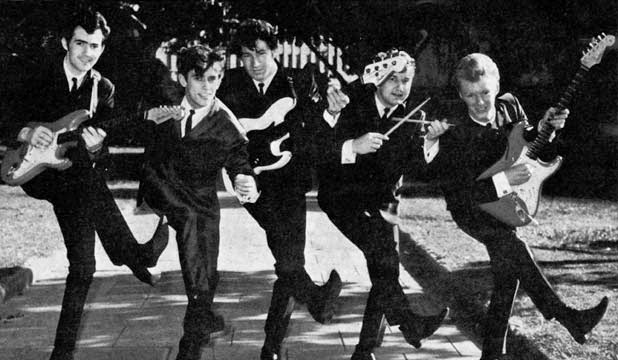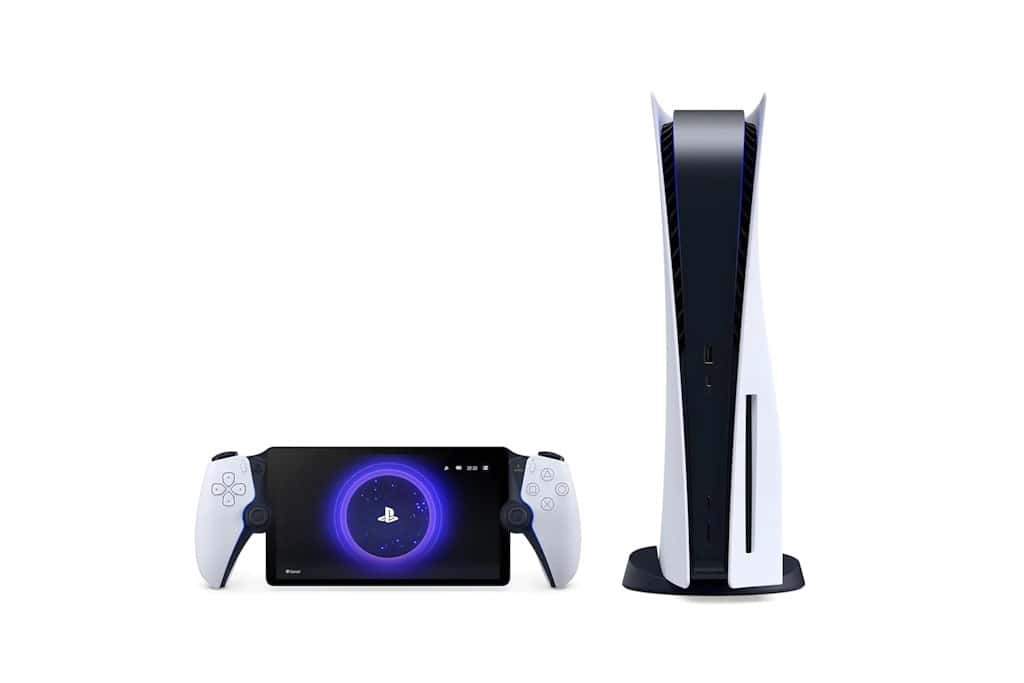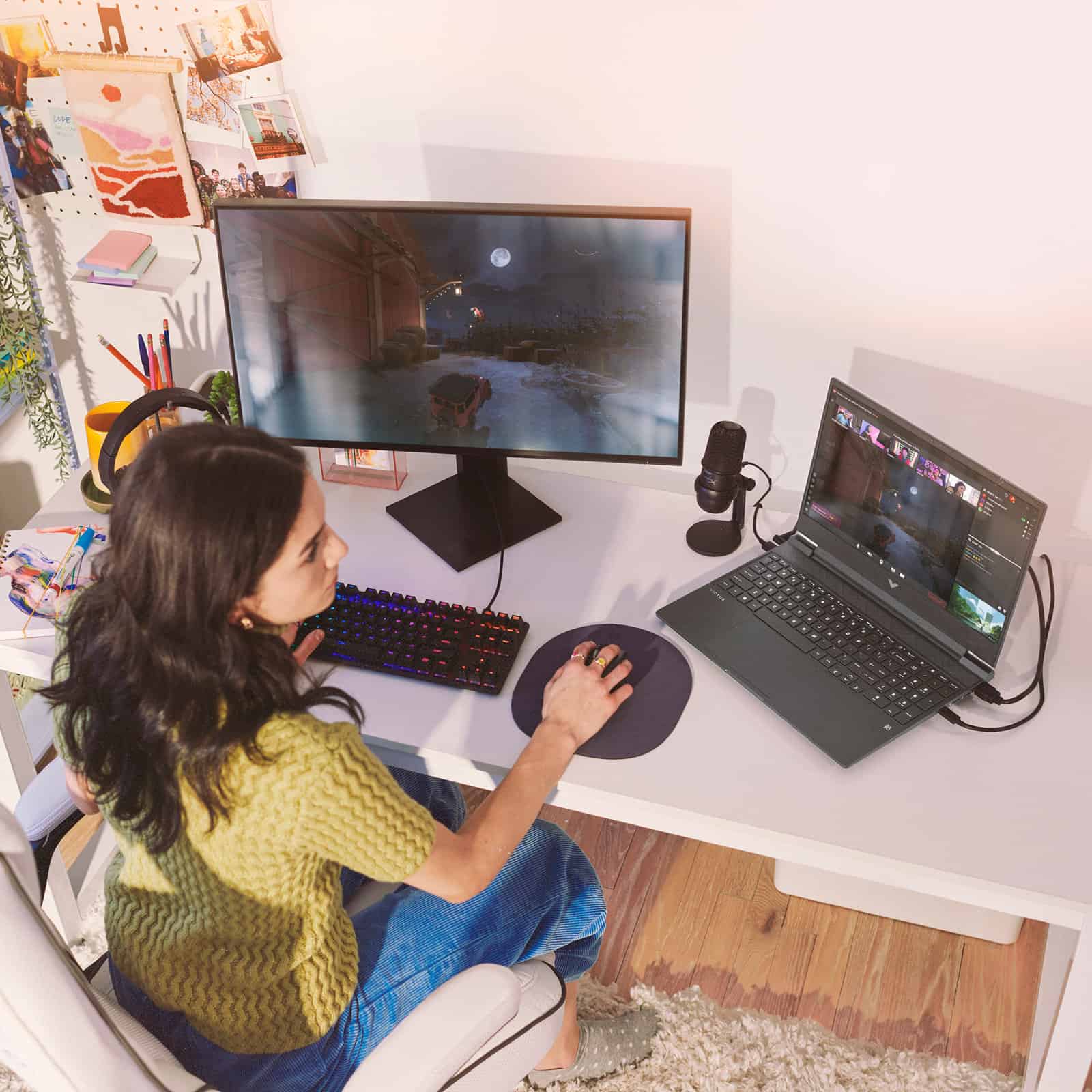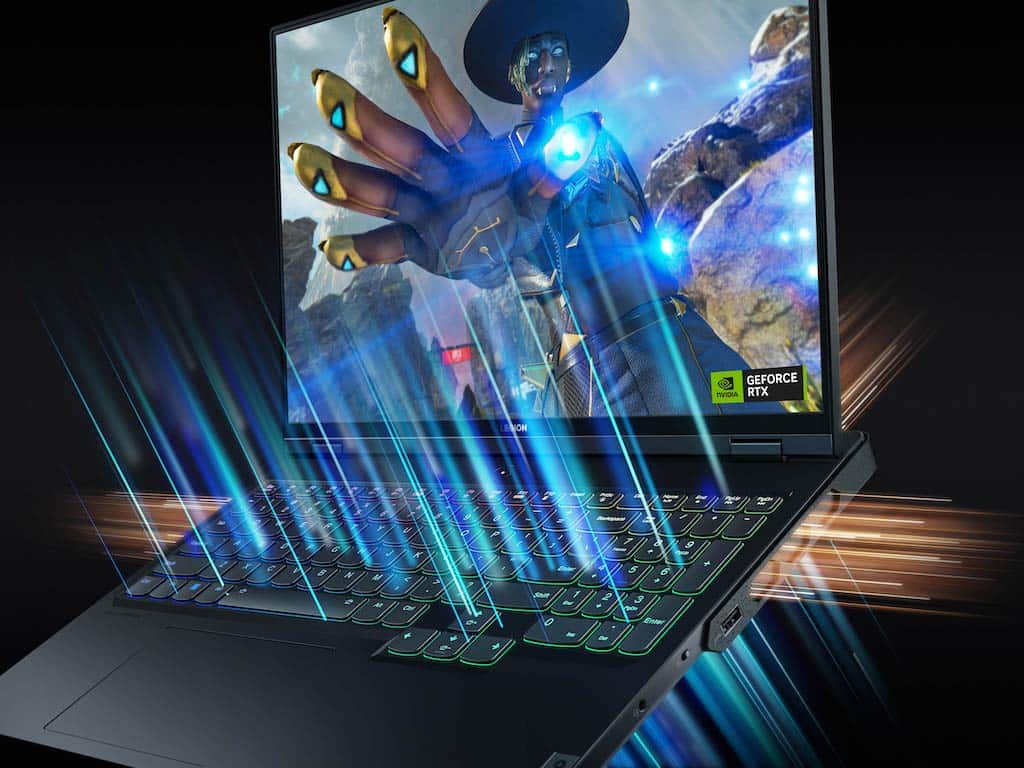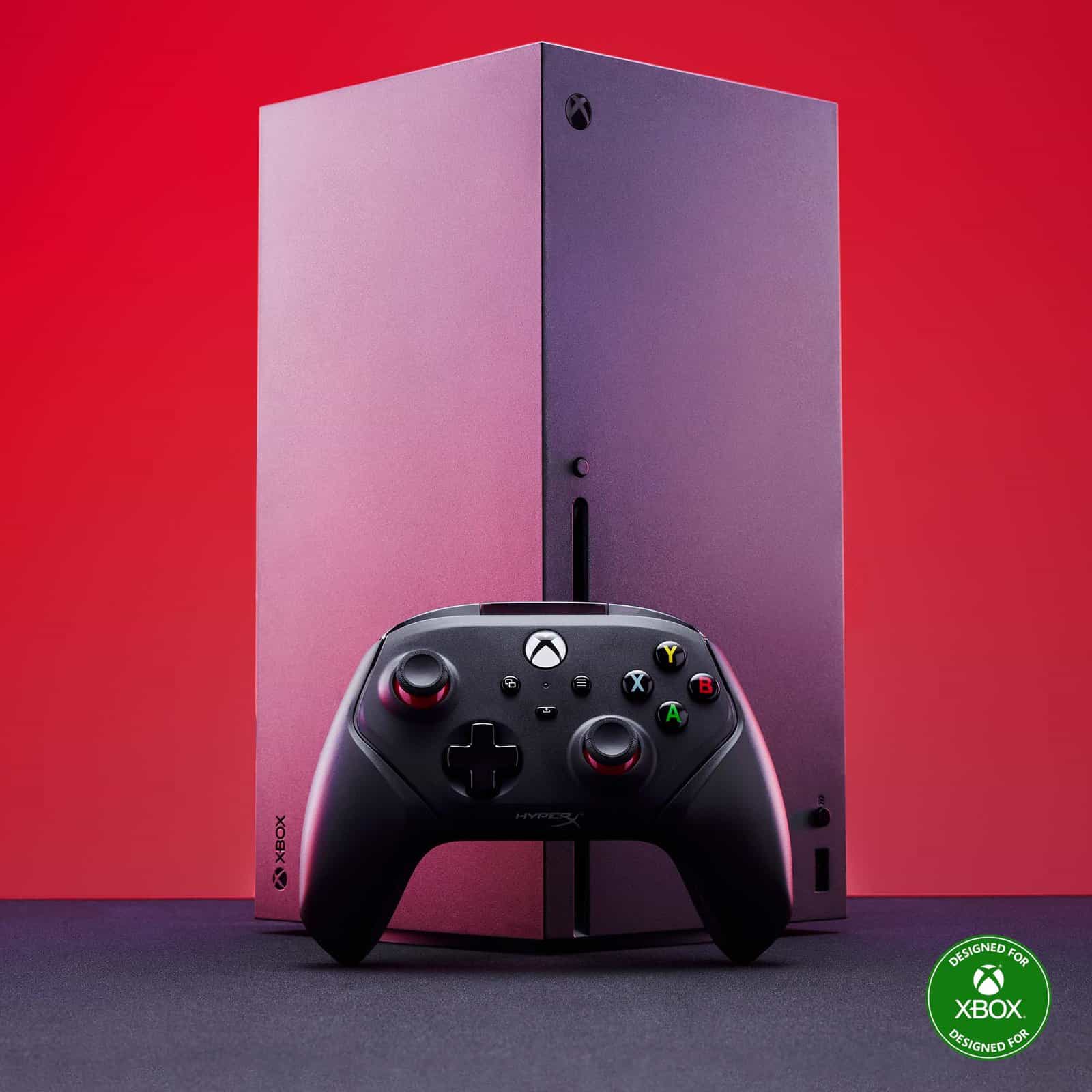On the eve of the release of Nintendo’s latest console, BEN CARMICHAEL makes a radical proposition. Or is it a prediction?
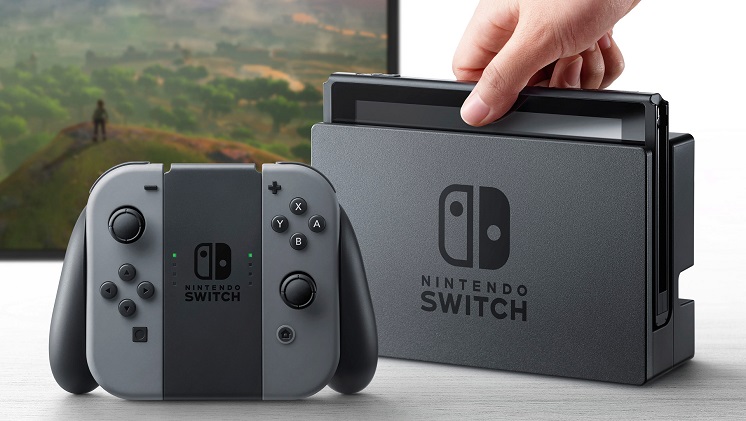 IN LESS THAN two months the Switch – Nintendo’s latest console – will be available for consumers to get their hot little hands on its shapely form factor. There’s been anticipation-plus at what Nintendo would release after the Wii U failed to light the world on fire, and we now have the answer.
IN LESS THAN two months the Switch – Nintendo’s latest console – will be available for consumers to get their hot little hands on its shapely form factor. There’s been anticipation-plus at what Nintendo would release after the Wii U failed to light the world on fire, and we now have the answer.
Nintendo have been at the forefront of handheld gaming for a number of years with the successful 3DS, and in the Switch they have attempted to combine the best of the 3DS with the world of in-home console gaming. For all the excitement that surrounds the 3DS, Nintendo Switch more accurately represents where Nintendo’s future lies, that literally being a switch from a console and software company into solely a software company, a la Sega.
Before I get accused of being an Xbox or PlayStation fanboy, let me just say that I grew up on Nintendo. Some of my very first gaming experiences were on the NES, playing on an ancient TV that had two band-aids forming an ‘X’ on the side of the TV that I would have to hit when the picture faded in order to keep gaming my little pre-teen heart out.
That love affair continued on to the Super Nintendo, and don’t get me started on the Nintendo 64: that console is up there as one of my all-time favourites, perhaps only second to my beloved, and much milgned Sega Dreamcast. Goldeneye 64 was the reason I bought the N64 and remains my all-time favourite FPS game. Couple that with fantastic memories of a long-standing rivalry with my Dad as we battled it out on Mario Kart 64, and the complete awe that I experienced with Zelda: Ocarina Of Time as it took up every waking moment when I wasn’t forced to attend school, and hopefully the picture starts to come through of a long love affair with Nintendo.
But that love affair can’t help but be tamed by the realist in me. Fact is, Nintendo just isn’t able to compete with the likes of Xbox and PlayStation in the current gaming environment. Yes, the Nintendo Wii has sold over 101 million units worldwide and the Nintendo 3DS has sold around 58 million units worldwide, but with the Nintendo Wii U the family friendly gaming giant found itself losing third party support and sales that just didn’t set the world on fire. When you have hardware that just can’t compete with the two big boys in the market it is a hard sell, and Nintendo can no longer just rely on the likes of Mario or Zelda to keep gamers happy. There needed to be third party support to give gamers more options, and that was something Nintendo struggled to do with the Wii U and to a large extent the 3DS as well.
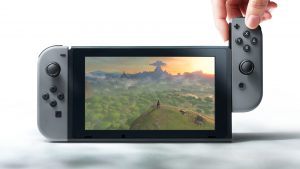 Move forward to the Nintendo Switch, and yes, it’s something we haven’t seen on the market before, and yes, there is some third party support behind it – but keep in mind there was some third party support for the Wii U as well before developers realised it just wasn’t worth their time to develop for the ailing platform.
Move forward to the Nintendo Switch, and yes, it’s something we haven’t seen on the market before, and yes, there is some third party support behind it – but keep in mind there was some third party support for the Wii U as well before developers realised it just wasn’t worth their time to develop for the ailing platform.
Thus comes some problems for the Switch. It has purpose and is an interesting concept but it just hasn’t captured my imagination like I thought it would. The Switch appears to be yet another Nintendo product that is more aimed at Nintendo’s hardcore fanbase. There are a lot of them out there, but this is Nintendo’s chance to break the shackles and appeal to a much wider base. To some extent they have given it a crack by making a console that can be taken anywhere without diminishing the gaming experience, but in a world where smartphones and tablets just keep getting more powerful, and Xbox and PlayStation have put out some serious home console power, the Switch just doesn’t really stack up.
I’m not the biggest fans of games on smartphones or tablets and I absolutely loathe the “freemium” elements that are ever so prevalent in the mobile market today, so Nintendo’s Switch has some merit there to be able to get a full game experience in hardware that can be taken anywhere, but at the same time it is just a gaming device. If it had the ability to stream content like Netflix and other apps as well, then we’d start to see a more attractive prospect. Alas, in the Switch we see a console that has possibly the most uncomfortable controller ever made, and looks way too small to be useful for gaming other than for children under the age of 7.
Plugging the Switch into the TV is an intriguing idea, but without the Nvidia graphics chip inside, this doesn’t fuel me with that much confidence. I’m sure it will be perfectly fine when taken on the road, which is likely to be the Switch’s primary purpose, but when connected to a TV, I just don’t see the Full HD graphics shining through in the same way as an Xbox One and PlayStation 4. The hardware is going to limit what Nintendo can do with it and while graphics aren’t the be all and end all of gaming, it just won’t be as aesthetically pleasing on the big screen as in the palm of my hand.
When the initial thrill of the Switch wears off, consumers are going to be left with a taste of what could have been: a piece of hardware that had real potential, but which never really sets the world on fire, much like the Wii U. Herein lies the issue for Nintendo. If sales start to dwindle rapidly, then they are going to struggle to maintain the interest of third party developers and have to fall back to relying heavily on first party games. Nintendo is by no means short of cash but at some point, the company is going to have to think about how best to get a return for their shareholders, while still presenting an attractive brand to consumers. When that happens, if it hasn’t already, surely one of the first things those well paid executives will be thinking is: “Do we switch the Switch to just being a game developer and publisher?”
Sega went through that very same predicament when the Sega Dreamcast was poorly received at a time when PlayStation showed a new way to do gaming. Sega had no cash and only survived thanks to Isao Okawa forgiving Sega for debts owed to him by the company, and giving them some $695 million worth of stock that he owned in the company. That charitable act allowed Sega to refocus their business on their most valuable assets: their ability to produce kick-ass games. The Sega fanboy in me will always remain hopeful that they one day re-enter the hardware market, but the realist in me knows that it wouldn’t be viable for them, as they have re-invented themselves as an excellent game developer and publisher. While Nintendo isn’t in the same financial dire straits as Sega, it’s still true that their value lies heavily in games like Mario and Zelda.
Nintendo themselves seem to have recognised that value by dabbling with some of their IP and hitting the mobile market, a move that shows the execs are maybe starting to test the waters and think about their future. The sooner they make that move completely, the better off the company will be. Research and development that goes into a console costs a hell of a lot more than it does to develop a game, so that alone is grounds to think about making the switch. Couple that with the unstoppable sales figures of the PlayStation 4 and pretty decent sales of the Xbox One as well, and the hype surrounding Project Scorpio, and all of a sudden there is a massive audience using those platforms with which to leverage Nintendo’s valuable IP.
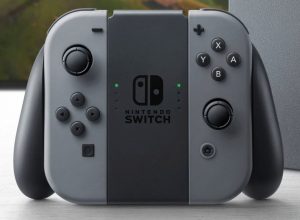 Games like Zelda that still have fantastic gameplay on Nintendo hardware could all of a sudden become some of the best selling games if they were licensed out and developed on PlayStation and Xbox Platforms. It may sound ridiculous, but Nintendo fans are hardcore, they love their brand and the games that come out on the console. I have little doubt that the bulk of fans would accept that the best way forward for the company is to see their beloved IP reach their full potential on rival platforms. Couple that with the millions of gamers on those platforms that have grown up as Nintendo fans and switched because Nintendo’s hardware just isn’t able to deliver the same experience, and you’d see generations old and new become re-acquainted with some of the most iconic characters in video game history.
Games like Zelda that still have fantastic gameplay on Nintendo hardware could all of a sudden become some of the best selling games if they were licensed out and developed on PlayStation and Xbox Platforms. It may sound ridiculous, but Nintendo fans are hardcore, they love their brand and the games that come out on the console. I have little doubt that the bulk of fans would accept that the best way forward for the company is to see their beloved IP reach their full potential on rival platforms. Couple that with the millions of gamers on those platforms that have grown up as Nintendo fans and switched because Nintendo’s hardware just isn’t able to deliver the same experience, and you’d see generations old and new become re-acquainted with some of the most iconic characters in video game history.
What we’d see from this switch is a win-win for Nintendo and consumer a like. Their games would all of a sudden be available to a much larger audience, many of whom already have an affinity with those franchises. Nintendo would be in a much stronger position, leveraging off those platform sales and thus strengthen their own balance sheet, freeing up their capital, cutting costs drastically without heavy investment in R&D while seeing cash roll in from consumers eager to see their heroes playing in all their glory, in much larger worlds on a PS4 or Xbox One.
It’s not going to happen right away, but mark my words, the Nintendo Switch console will likely be remembered as a name that will ease consumers into the new age for the company, where our last remaining iconic gaming hardware brand follows Sega’s path and re-invigorates itself as one of the world’s best third party developers for PlayStation, Microsoft and mobile. BEN CARMICHAEL
- Check out Ben’s own blog Those Gamers.



